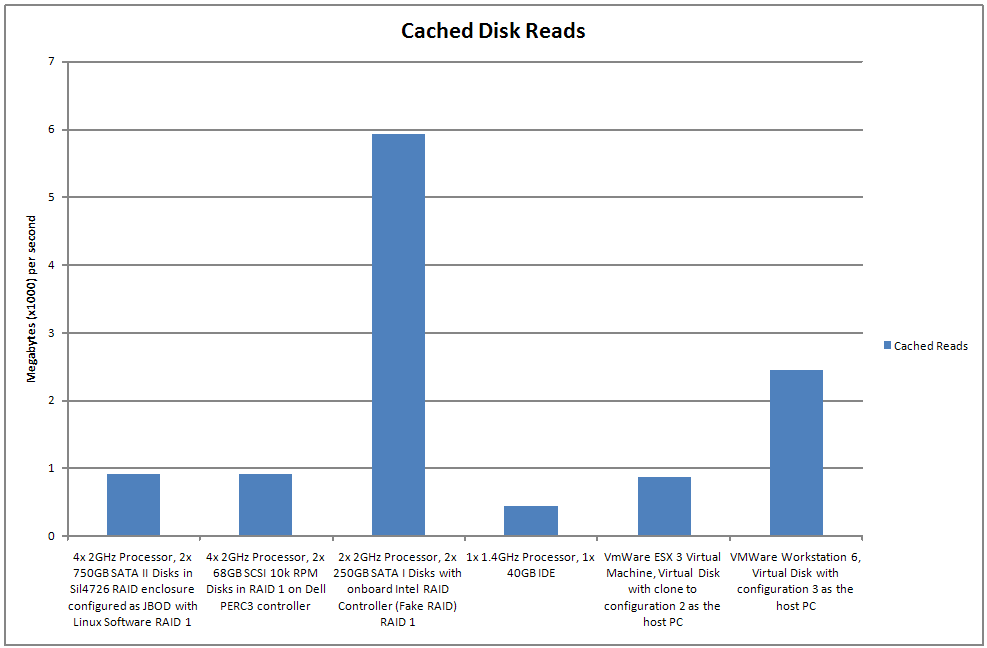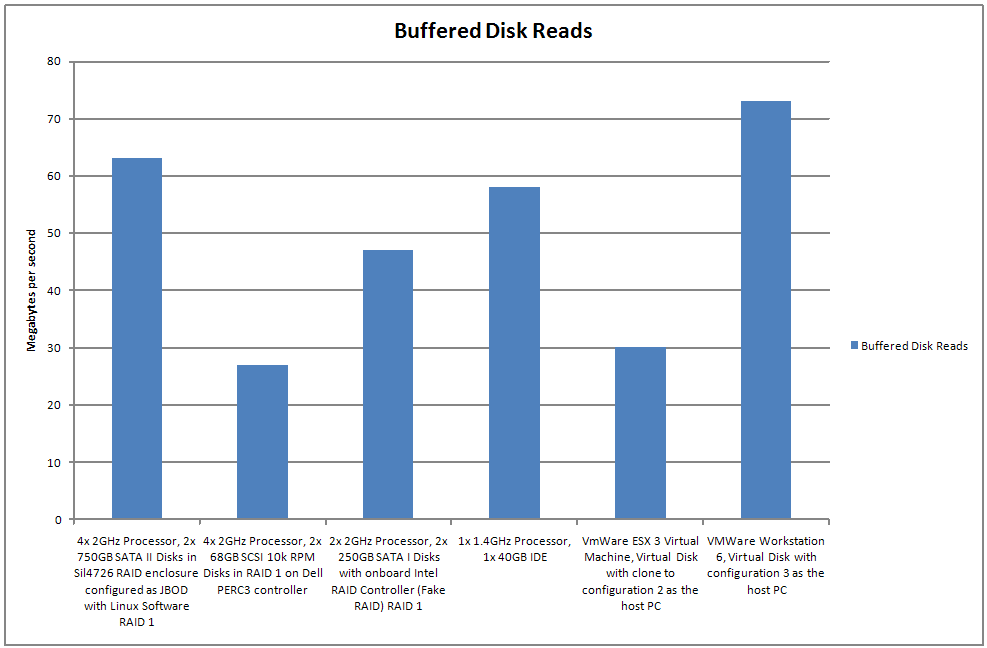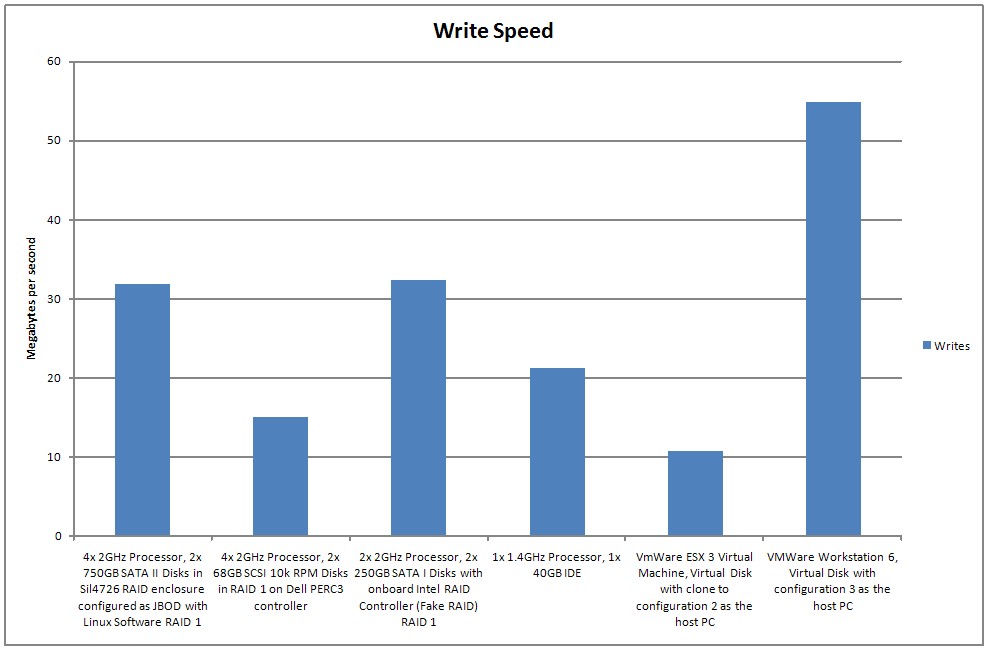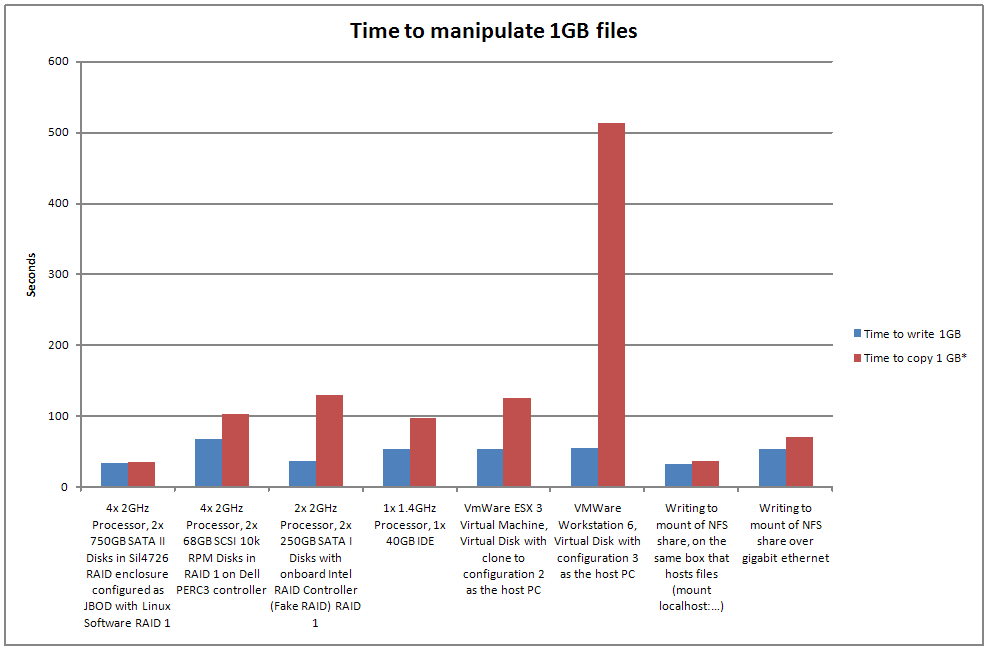So I’m in the process of moving shared files to the new disk server. Over a 5.7GB zip file transfer I benchmarked NFS copy over a 10/100 network to the new RAID @ 7.54MB/s. NFS parameters have been slightly tweaked so the mount entry in fstab looked like this:
dslabfs:/dsl01/projects/tnt/shared /shared2 nfs tcp,nolock,rsize=8192,wsize=8192 0 0



